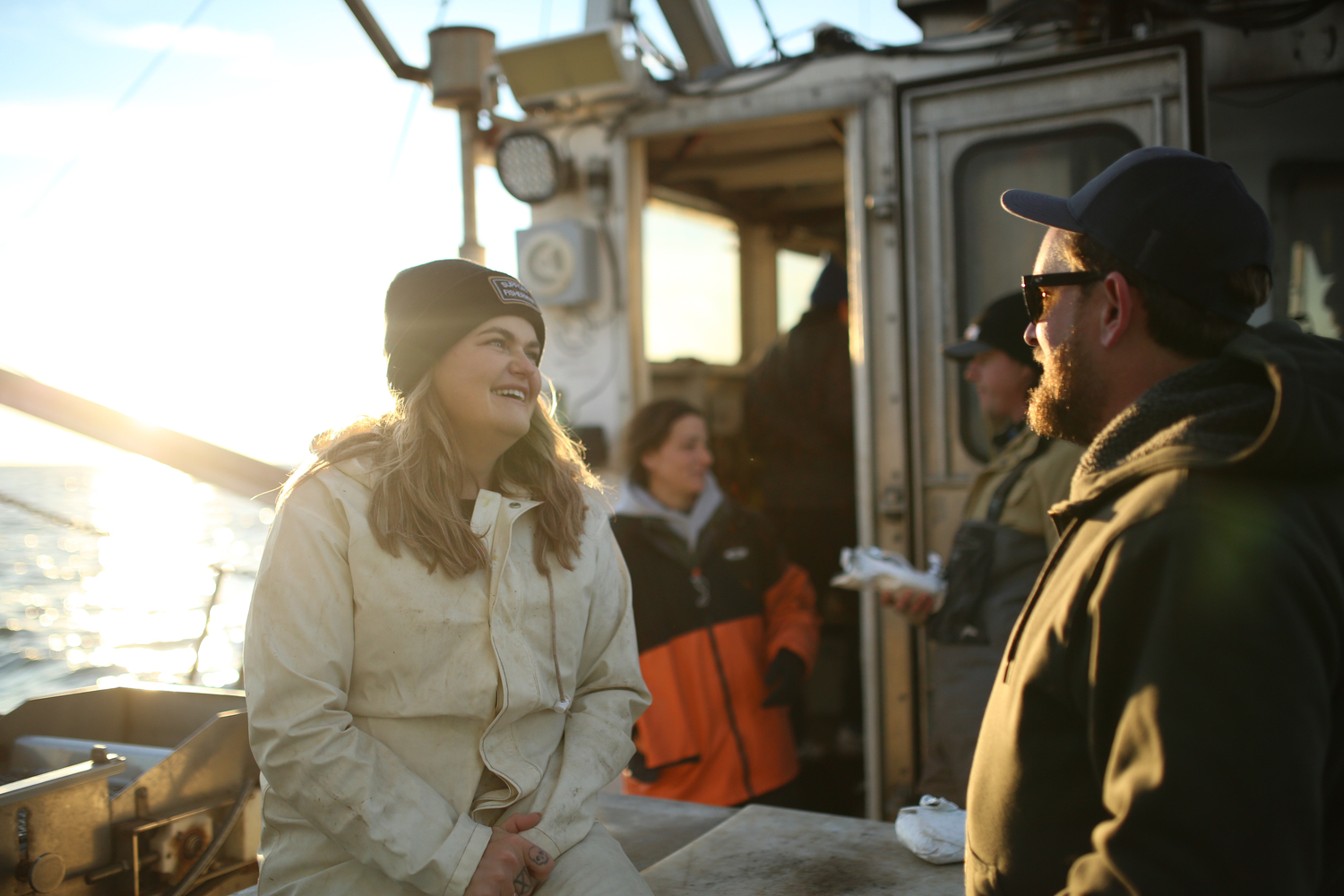
Just off the shores of Long Island, there lies an overwhelming bounty of fish, crustaceans and mollusks, ripe for the taking.
But more often than not, these local catches will not appear on local menus, according to Dock to Dish owner K.C. Boyle — and through his sustainable seafood company, he is looking to change that.
For over a decade, the Montauk-based fishery cooperative has helped provide local catches to both direct consumers and restaurants. Under new ownership, it is only expanding those efforts, Boyle said, with a reenergized focus on delivering not only fresh seafood, but also unsung species, directly to kitchens across the East End and beyond.
“I think customers are hungry for story,” he said. “They’re hungry for transparency and I think they’re eager to support their local fishing community.”
As a young boy growing up in Huntington, Boyle spent every spare moment on or near the water, a fishing pole rarely not in hand. By fifth grade, he was fishing well over 100 days per year, he said, affectionately known to local fishermen as a “dock rat.”
“Some kids did day camp, and I fished. It was just an immediate obsession,” he said. “It’s just so different than being on land. Everything about it is just so immersive. Your senses are activated in a completely different way. It feels different to be on the water. It smells different, it looks different, sounds different. Everything you’re absorbing is different.”
Ultimately, fishing led to cooking, he said — from learning how to cook his catch as a child to his college years working in restaurants in Vermont, still fishing in his spare time.
“I thought for sure it was something that I was going to pursue professionally after college,” he said. “However, simultaneously, I caught the political bug.”
In 2007, Boyle moved to Philadelphia and worked as a community organizer, he said. Three months later, Barack Obama’s primary campaign came through town.
“I volunteered for one day,” he said, “and by the time I got home, I had a job offer in my inbox.”
Boyle would go on to spend the next 17 years working in politics, he said, and eventually managed his own consulting firm. But in the background, he became a licensed fishing captain and sommelier.
He couldn’t let it go, he said, and in November 2023, he bought Dock to Dish, which had lain dormant for nearly three years — a casualty of the COVID-19 pandemic — before he relaunched it alongside six fishing families.
Over the last year and a half, the company has grown considerably, Boyle said.
“We’ve worked with over 100 fishing boats and we’re working with over 300 restaurants,” he said. “And this is just year one. So we’re really excited about where this journey is going to take us.”
Outside of pushing fresh seafood into restaurant kitchens, Dock to Dish aims to elevate underappreciated, but still equally delicious, species of fish and crustaceans — among them skate, porgy and the deep-sea royal red shrimp, caught locally off the coast of Montauk.
“Try to use black sea bass instead of branzino, or striped bass instead of Chilean sea bass,” Boyle said. “We have beautiful alternatives that are right on our doorstep that are often overlooked. So promoting the bycatch, as we call it, is huge — but the biggest battle is just trying to convince restaurants that it’s worthwhile to menu local fish.”
“To be honest with you, it has nothing to do with price,” he added. “It has everything to do with consumer habits. But we’re changing hearts and minds constantly, and the outpouring of support and interest from Hamptons restaurants from this year, as opposed to last year, is immense.”
By shining a spotlight on less featured, diverse fish, especially in the fine dining world, it not only takes the heat off species that are widely targeted, but also creates a more sustainable fishing landscape. It also helps support fishermen, who quite literally put their lives on the line to keep local fish on local plates, Boyle said.
The fishing industry is “dying a very quick death right now,” he explained. Against a backdrop of skyrocketing housing costs, younger fishermen can no longer afford to stay, he said, noting that the majority of Dock to Dish’s fleet is over age 60.
“We really have very few options for younger fishermen in their 20s and 30s to convince them that this is a viable career path,” he said. “I don’t know if we’re going to have a local fishery in 15 years unless we can really start shining a spotlight on these local products and showing the next generation that there’s support from their local community to do this.”
For more information about Dock to Dish, visit docktodish.com.